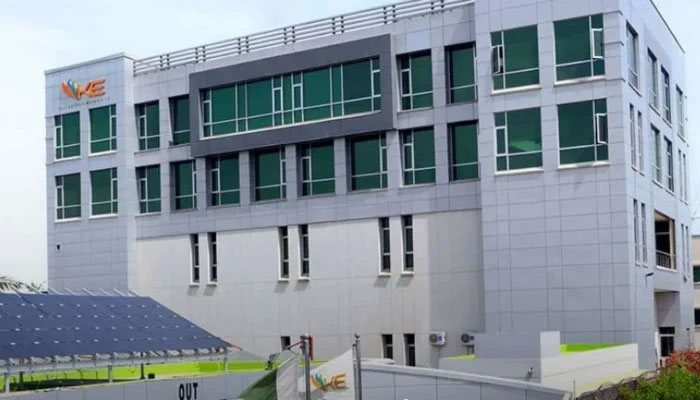K-Electric willing to refund Rs247m to its clients
NEPRA has scheduled a public hearing on Thursday, October 31, 2024, to review K-Electric’s petition
ISLAMABAD: K-Electric, the Karachi-based power utility, has filed a petition with the National Electric Power Regulatory Authority (NEPRA) willing to refund Rs0.16 per unit to consumers as part of monthly fuel charge adjustments (FCA) for September 2024, totaling approximately Rs247 million.
NEPRA has scheduled a public hearing on Thursday, October 31, 2024, to review K-Electric’s petition. The hearing will address two primary concerns: whether the requested FCA is justified and if the utility adhered to the established merit order when generating electricity from its own power plants and purchasing it from external sources.
In its petition, K-Electric argued that the adjustment is consistent with NEPRA’s previous decisions on provisional monthly fuel cost adjustments for the period from July 2023 to June 2024. The company highlighted that provisional FCAs were authorized based on parameters outlined in the Multi-Year Tariff (MYT) for 2017-2023, and adjustments may be implemented once the MYT for 2024-2030 is finalized.
The FCA for September 2024 has been calculated using the interim tariff established in March 2023 as the reference point. K-Electric’s submission included detailed calculations and supporting documentation for NEPRA’s evaluation and approval.
However, K-Electric has faced ongoing criticism during public hearings regarding its reliance on ageing gas-guzzling power plants, which contribute to rising costs borne by consumers or subsidized by the government. Business leaders in Karachi have expressed concerns that NEPRA is overlooking the utility’s inefficiencies, particularly the company’s failure to modernize its outdated, four-decade-old plants. These facilities produce costly electricity, leading to higher tariffs for consumers and significant government subsidies aimed at maintaining uniform pricing.
Moreover, stakeholders have pointed out that no assessments have been made regarding the heat rate of K-Electric’s plants, which are generating expensive power.
-
 2026 Winter Olympics Men Figure Skating: Malinin Eyes Quadruple Axel, After Banned Backflip
2026 Winter Olympics Men Figure Skating: Malinin Eyes Quadruple Axel, After Banned Backflip -
 Meghan Markle Rallies Behind Brooklyn Beckham Amid Explosive Family Drama
Meghan Markle Rallies Behind Brooklyn Beckham Amid Explosive Family Drama -
 Scientists Find Strange Solar System That Breaks Planet Formation Rules
Scientists Find Strange Solar System That Breaks Planet Formation Rules -
 Backstreet Boys Voice Desire To Headline 2027's Super Bowl Halftime Show
Backstreet Boys Voice Desire To Headline 2027's Super Bowl Halftime Show -
 OpenAI Accuses China’s DeepSeek Of Replicating US Models To Train Its AI
OpenAI Accuses China’s DeepSeek Of Replicating US Models To Train Its AI -
 Woman Calls Press ‘vultures’ Outside Nancy Guthrie’s Home After Tense Standoff
Woman Calls Press ‘vultures’ Outside Nancy Guthrie’s Home After Tense Standoff -
 Allison Holker Gets Engaged To Adam Edmunds After Two Years Of Dating
Allison Holker Gets Engaged To Adam Edmunds After Two Years Of Dating -
 Prince William Prioritises Monarchy’s Future Over Family Ties In Andrew Crisis
Prince William Prioritises Monarchy’s Future Over Family Ties In Andrew Crisis -
 Timothée Chalamet Turns Head On The 'show With Good Lighting'
Timothée Chalamet Turns Head On The 'show With Good Lighting' -
 Bucks Vs Thunder: Nikola Topic Makes NBA Debut As Milwaukee Wins Big
Bucks Vs Thunder: Nikola Topic Makes NBA Debut As Milwaukee Wins Big -
 King Charles Breaks 'never Complain, Never Explain' Rule Over Andrew's £12 Million Problem
King Charles Breaks 'never Complain, Never Explain' Rule Over Andrew's £12 Million Problem -
 Casey Wasserman To Remain LA Olympics Chair Despite Ghislaine Maxwell Ties
Casey Wasserman To Remain LA Olympics Chair Despite Ghislaine Maxwell Ties -
 Shaun White Is Back At The Olympics But Not Competing: Here’s Why
Shaun White Is Back At The Olympics But Not Competing: Here’s Why -
 Breezy Johnson Engaged At Olympics After Emotional Finish Line Proposal
Breezy Johnson Engaged At Olympics After Emotional Finish Line Proposal -
 King Charles Wants Andrew To 'draw A Line' Under Epstein Issue
King Charles Wants Andrew To 'draw A Line' Under Epstein Issue -
 John Wick Game Confirmed With Keanu Reeves And Lionsgate Collaboration
John Wick Game Confirmed With Keanu Reeves And Lionsgate Collaboration




